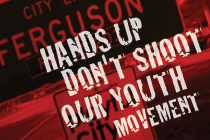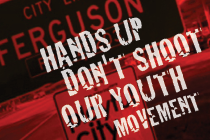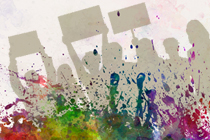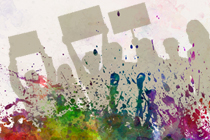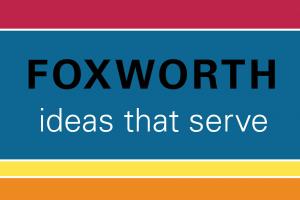The following faculty have been selected as 2015-16 Foxworth Faculty. The grant will allow faculty to create and implement courses that utilize the arts and humanities to help contextualize and present pressing societal issues.
This initiative is made possible by the generosity of two college alumni, Domonique and Ashley Foxworth. Domonique, Class of 2004, is a graduate of American Studies and Ashley, ’06, is an English alumna. The Foxworth Initiative is intended to support learning that brings students in contact with their surrounding communities as partners and allies in practices that help transform and bring about social justice. Courses supported by the initiative provide students with skills and critical thinking that support continued community engagement beyond their college career. For more information, visit www.arhu.umd.edu/foxworth.
FOXWORTH FACULTY COHORT:
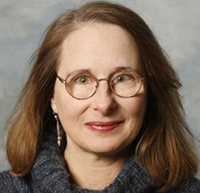
Faculty Lead: Karen Bradley, School of Theatre, Dance, and Performance Studies
Course: Essence, Identity, and Empowerment through the Arts: A Project for High Point High School
Social Issues: Adolescent identity, at risk youth
Approach: This course will focus on arts practices that develop habits of mind, heart and body/spirit in 14-25-year-olds. The primary purpose of this course is to train future arts educators for challenged students. These educators will learn to help students at risk of violence and anomie find voice and identity, and develop community through arts practices. UMD students will develop these skills in themselves and apply them to high school students at High Point High School. UMD students will design and lead arts experiences through methods, such as free drawing, acting exercises and slam poetry, while becoming advocates for arts integration in the school community.
Community Benefit: Students at High Point High School face issues of poverty, loss of community and identity, and oftentimes, trauma issues. UMD students will guide them toward access to focus, adaptability, a sense of self, self-efficacy and regulation skills, as well as organization, observation, analysis,, choice-making, predicting and communication skills via performance. In no way will every high school student achieve all of these, but they will be introduced to these concepts and experience practices that can lead to understanding and skill development.
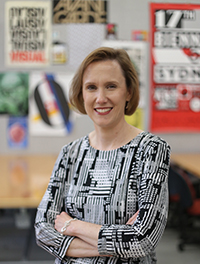
Faculty Lead: Audra Buck-Coleman, Department of Art
Courses: Advanced Graphic Design Principles: Design in Society and Three Dimensional Graphic Design
Social Issues: Adolescent identity, at-risk youth, social protest, structural racism and inequality
Approach: Over the course of two semesters, UMD senior graphic design students will collaborate with students from Augusta Fells Savage Institute of Visual Arts, a public high school in West Baltimore. Together they will leverage their creative skills to respond to the media’s negative and one-dimensional portrayal of the Baltimore students and their community during last year’s uprising. They will produce a series of creative works that promote positive, well-rounded notions of the students’ identities and the Baltimore community and that address the timeless and timely issues of structural racism, identity, unrest and self-agency as they relate to the Baltimore uprising. Their works will be exhibited at the Reginald F. Lewis Museum in Baltimore from April through August 2016, coinciding with the first anniversary of Freddie Gray’s death. The exhibition will include participatory elements to engage audiences and add their insights to these important conversations.
Community Benefit: Through their interactions, the high school students’ personal narratives and opinions will reshape UMD students’ understandings about identity, privilege and representation. The Baltimore students will be empowered on various levels: they will be given an opportunity and a means with which to re-write narratives about themselves and their community; they will understand how to use creative means as productive expression; they will also gain knowledge regarding artistic practices and contemporary technology with hopes that these exposures may positively affect the way in which they imagine their education or professional endeavors beyond high school.
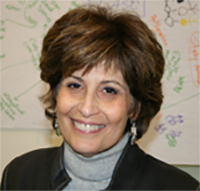
Faculty Lead: Roberta Z. Lavine, School of Languages, Literatures, and Cultures
Course: Spanish for Health Professions
Social Issues: Cultural competence shortages in health professions
Approach: This course will allow students to explore the need for Spanish-English cultural and linguistic competency in health-related contexts. Students will partner with the Health Center to focus on outreach for Spanish-speaking dining services workers on campus. In class and in the outreach experience, students will examine and develop their own cultural competency by exploring identities, critically analyzing and solving problems, learning collaboratively and meaningfully interacting with members of other cultures. They will learn with and from the targeted campus community to develop strategies to advance culturally and linguistically appropriate health services on campus.
Community Benefit: The two tangible types of benefits to the clients are gaining health literacy and understanding how to maintain wellness, in culturally appropriate interactions that value and involve the workers themselves. In a respectful and participatory environment, the chances of client follow-through on health interventions are increased. UMD students will be able to explore and analyze their multiple identities and have real-world experiences working with Latino communities.
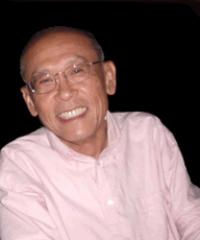
Faculty Lead: Jason Kuo, Department of Art History and Archaeology
Course: Aging and Creativity: Older Artists in Our Community
Social Issues: Ageism
Approach: This highly experiential and interdisciplinary course will engage students in the experience of the maturing artist through studying literature, attending guest lectures and conducting interviews and site-visits with older artists in the community. Interviews with selected artists will allow students to assist in documenting the artists’ life and art. These tasks will incorporate the disciplines of art history, gerontology and museum studies for students to ultimately shape an exhibition at the Brentwood Arts Exchange devoted to arts created by people over the age of 65. This will involve applying the research and experience from throughout the course to select the works, design the space, organize public programs and publish the exhibition catalog, brochures and wall labels.
Community Benefit: The contemporary art world focuses its attention on young emerging artists, creating difficulty for maturing artists to enter or re-enter public view. The goal of this course is to help their art become better recognized, documented, publicly exhibited and appreciated by our community. Research has demonstrated that community-based cultural programs for older adults are effective in health promotion, disease prevention and reduction in the need for long-term care. UMD students will benefit from the intergenerational interaction by gaining perspective of the ageist practices in the art world and the creative vitality that can be found in the maturing artist community.


